Denis Wilson Souza Rosa & Steffen Schneider
Databases on Kubernetes: Why you should care
#1about 3 minutes
The evolution of running databases in containers
The community's perspective shifted from advising against running databases in containers to embracing it due to improvements in Docker and the rise of Kubernetes.
#2about 1 minute
Challenges of a naive database deployment on Kubernetes
A simple deployment of a database like MySQL on Kubernetes creates configuration management problems and requires maintaining multiple container images.
#3about 5 minutes
Using custom resource definitions to manage configuration
Custom Resource Definitions (CRDs) extend the Kubernetes API, allowing you to store application-specific configuration directly within the cluster.
#4about 4 minutes
Understanding stateful application failures in Kubernetes
Standard Kubernetes deployments fail to manage stateful applications like databases because they don't handle node failures, pod affinity, or state recovery automatically.
#5about 5 minutes
The Kubernetes operator pattern for database automation
The operator pattern uses custom controllers to listen for events and encode operational knowledge, automating complex tasks like database recovery and upgrades.
#6about 10 minutes
Live demo of the Couchbase operator in action
The Couchbase operator demonstrates self-healing by automatically replacing a deleted pod, rejoining it to the cluster, and rebalancing data without manual intervention.
#7about 7 minutes
Scaling and upgrading a database with an operator
Operators simplify complex operations like scaling out nodes, performing rolling upgrades, and tuning resource allocation by just modifying a declarative configuration file.
#8about 3 minutes
Comparing managed DBaaS with databases on Kubernetes
While managed DBaaS is simpler for small workloads, running databases on Kubernetes with operators provides greater flexibility, control, and cost-effectiveness at scale.
#9about 4 minutes
Storage and performance considerations on Kubernetes
Using local persistent storage is recommended for performance, and benchmarks show only a minimal 3-4% overhead when running databases in containers versus bare metal.
#10about 1 minute
Key takeaways for running databases on Kubernetes
When running databases on Kubernetes, choose a mature operator, prefer local persistent storage, and account for a small performance overhead compared to bare metal.
Related jobs
Jobs that call for the skills explored in this talk.
Power Plus Communications
Mannheim, Germany
Intermediate
Senior
Docker
Kubernetes
+1
Hubert Burda Media
München, Germany
€70-85K
Junior
Intermediate
Kubernetes
Linux
+2
ROSEN Technology and Research Center GmbH
Osnabrück, Germany
Senior
TypeScript
React
+3
Matching moments
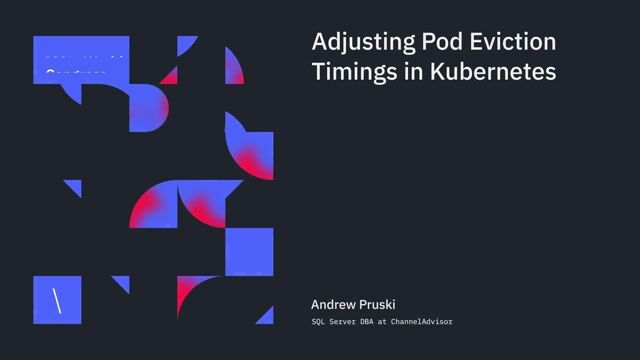
03:02 MIN
A DBA's journey to running SQL Server on Kubernetes
Adjusting Pod Eviction Timings in Kubernetes
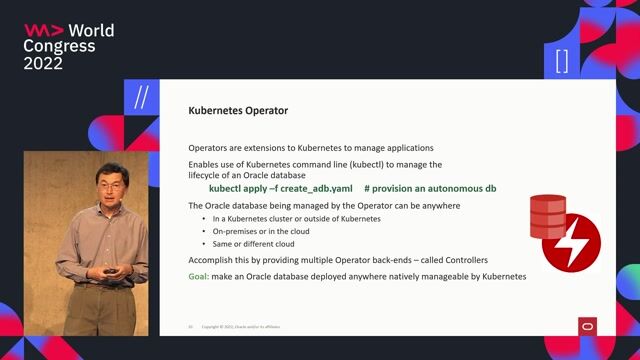
04:52 MIN
Managing any Oracle database with a Kubernetes operator
Kubernetes and Microservices with Multi-Model Databases
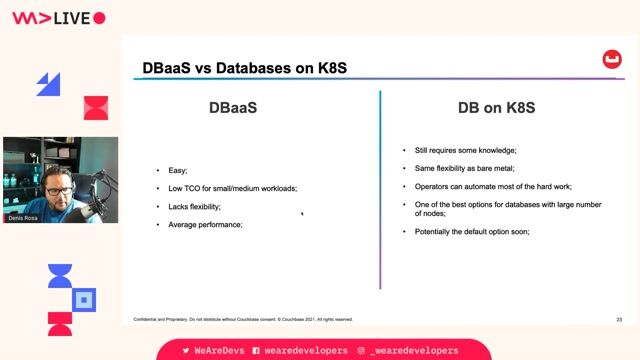
03:38 MIN
Comparing self-managed Kubernetes databases to DBaaS
Databases on Kubernetes
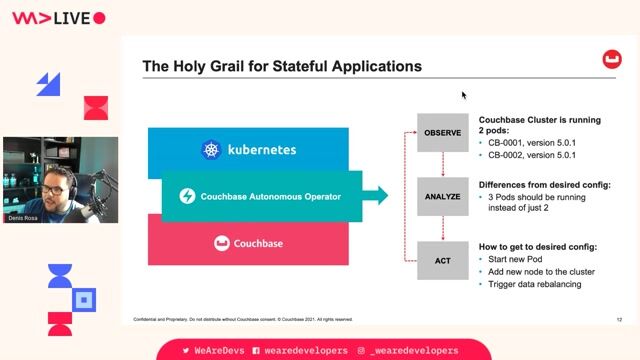
08:49 MIN
Deploying a database cluster using a YAML file
Databases on Kubernetes
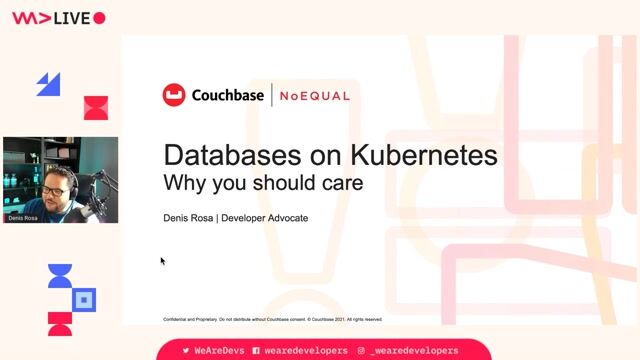
04:41 MIN
Why running databases in containers is now a reality
Databases on Kubernetes
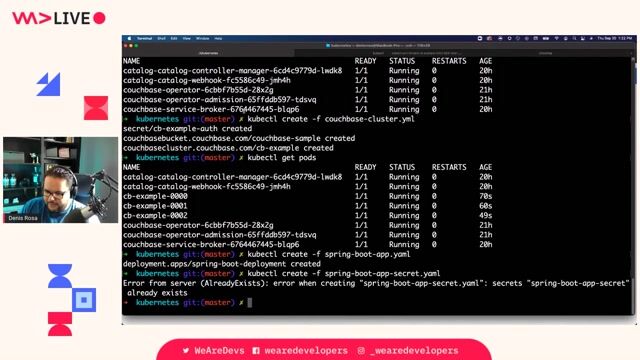
07:53 MIN
Automating database recovery and scaling with an operator
Databases on Kubernetes

04:45 MIN
Q&A on hybrid cloud strategy and data management
Embracing the Hybrid Cloud: Unlocking Success with Open Source Technologies
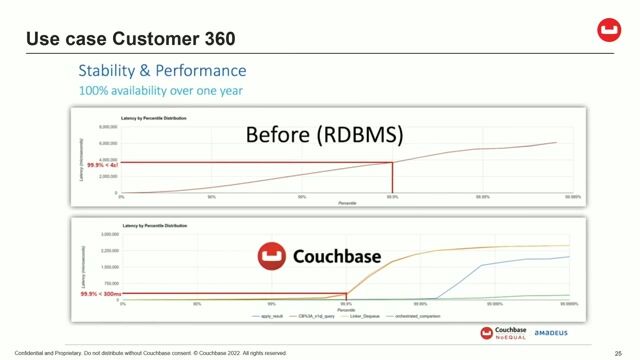
02:05 MIN
Implementing a global hybrid-cloud database architecture
Database Magic behind 40 Million operations/s
Featured Partners
Related Videos
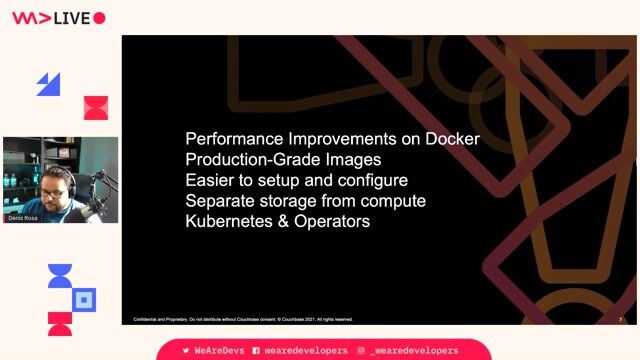 48:45
48:45Databases on Kubernetes
Denis Souza Rosa
 43:28
43:28Tomorrow's cloud data platforms - fully managed database-as-a-service (DBaaS)
Gregor Bauer
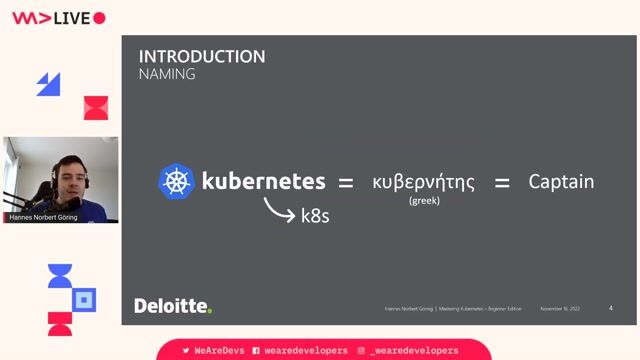 57:24
57:24Mastering Kubernetes – Beginner Edition
Hannes Norbert Göring
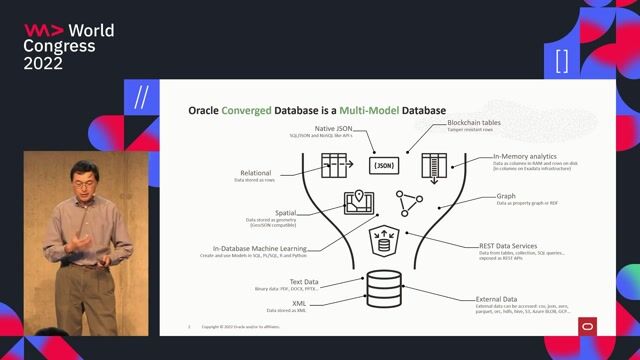 29:30
29:30Kubernetes and Microservices with Multi-Model Databases
Wei Hu
 29:21
29:21Kubernetes Maestro: Dive Deep into Custom Resources to Unleash Next-Level Orchestration Power!
Um e Habiba
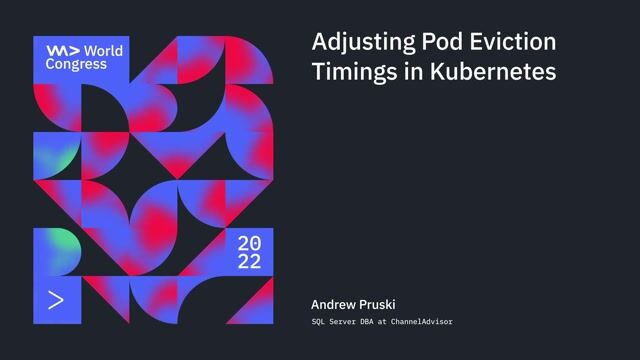 29:06
29:06Adjusting Pod Eviction Timings in Kubernetes
Andrew Pruski
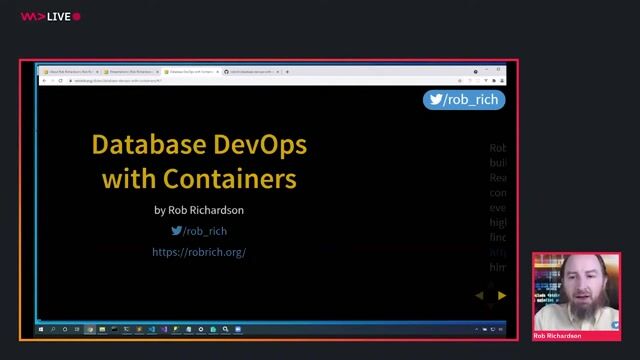 39:15
39:15Database DevOps with Containers
Rob Richardson
 30:35
30:35It's all about the Data
Michael Cade
Related Articles
View all articles



From learning to earning
Jobs that call for the skills explored in this talk.

VP-Systeme GmbH
Düsseldorf, Germany
Python
Openshift
Kubernetes
Data analysis
Continuous Integration




Dataport
Hannover, Germany
DevOps
Openshift
Agile Methodologies
Continuous Integration
Configuration Management
+1

Dataport
Altenholz, Germany
DevOps
Openshift
Agile Methodologies
Continuous Integration
Configuration Management
+1

DATAGROUP Operate IT GmbH
Berlin, Germany
Terraform
Kubernetes
Continuous Integration

